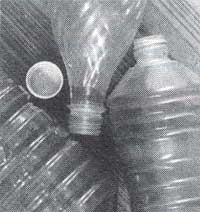Plastic is good
 Incinerating unrecyclable waste plastic is environmentally the most benign way of disposing of it, new experiments show (New Scientist, Vol 143, No 1932).
Incinerating unrecyclable waste plastic is environmentally the most benign way of disposing of it, new experiments show (New Scientist, Vol 143, No 1932).
Europe's Association of Plastic Manufacturers incinerated municipal waste containing 3 different proportions of plastics -- without added plastic, with 7.5 per cent extra plastic and with 15 per cent extra plastic. It found that the greater the proportion of plastics in the waste, the greater the heat produced -- which could be used to generate electricity -- and the lesser the amount of airborne pollutants produced.
Though plastics normally account for 7 per cent by weight of municipal solid wastes, they store up to 30 per cent of the energy content of garbage.
Related Content
- Harnessing the role of private sector in waste management through South-South and Triangular Cooperation for inclusive urbanization
- Get CLEAN and GREEN: solid and plastic waste management in Lao PDR
- Explained: Europe’s new waste prevention and reuse laws
- Explained: Europe’s new waste prevention and reuse laws
- The Chhattisgarh Plastic And Other Non Biodegradable Material (Regulation Of Use And Disposal) Bill, 2020.
- With Carbon Dioxide Concentrations Nearing New Highs, 2020 Will Be ‘Make It or Break It Year’ for Climate Action, Secretary-General Warns
